WhatsApp is the most used messaging app.1 25% of the World population actively uses it, and each day around 1 million people become new WhatsApp users (see Figure 1). Thanks to these statistics, WhatsApp is a perfect medium for many businesses that want to engage with their customers.
Firms need a verified WhatsApp Business API account to carry out marketing operations on WhatsApp with an official company account that displays a green check (see Figure 2). Working with WhatsApp Business Partners is the simplest approach to have a WhatsApp Business account.
Companies are not assisted by WhatsApp Partners during the API verification procedure only. Additionally, partners develop conversational commerce tools like WhatsApp chatbots, template messages, etc. Therefore, selecting a suitable partner becomes an important strategic decision firm.
This article serves as a comprehensive how-to guide for helping marketers choose a reliable vendor. In light of this, we present features that marketing professionals should take into account when selecting a WhatsApp Business Partner. We also share information about the top 5 official WhatsApp Business Providers we choose at the end of the article.
Figure 2: An example of an official WhatsApp Business account with a green check.
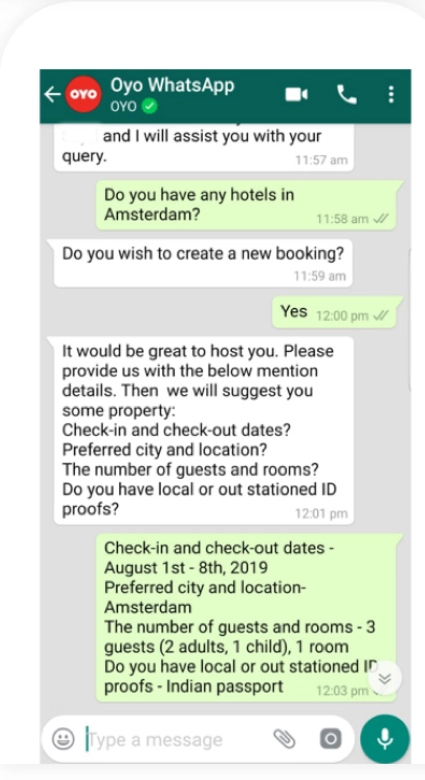
4 factors to assess when choosing a WhatsApp Business Partner
1. Conversational AI tools VS e-commerce marketing
Our benchmarking of conversational commerce platforms revealed that it is viable to group the majority of WhatsApp Business Partners2 into the following three clusters (see Figure 3):
- Conversational AI companies: These companies tend to specialize in building WhatsApp chatbots and automate customer interactions with them.
- E-commerce marketing companies: These companies tend to specialize in preparing pre-built messages and sending them to the customers according to customer data.
- Complete conversational commerce companies (intersection of previous ones): Conversational commerce companies are specialized on both WhatsApp chatbot deployment and using customer data to send push notifications. Also, these companies’ tools let customers discover new products via two-way communication.
Figure 3: Overview of conversational commerce market.
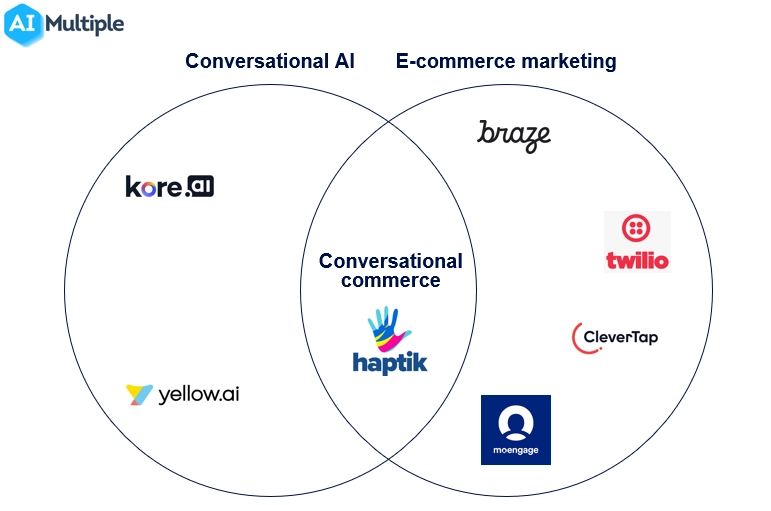
While choosing a WhatsApp Business Partner, you can use this comparison as a first screening since it can help you quickly eliminate almost half of the companies.
2. Supported WhatsApp API features
A vital factor in selecting a vendor is whether or not the WhatsApp Business Partner supports specific WhatsApp API functionalities. Because not all partners can provide all functionalities of WhatsApp Business API.
For instance, if you have customers all around the world who speak different languages, you should choose a business partner who supports template message localization capacity. This enables you to deliver messages for each template in many languages.
Another important criterion is that many marketing teams should be engaging with customers via images, GIFs, videos etc. are important (mediums other than text). If you are in such a marketing department, then ensure to collaborate with a WhatsApp Business Partner that can support rich messaging.
3. Ease of integration of your CRM with WhatsApp API
Companies may want to combine their CRM system with technologies like WhatsApp chatbots in order to use WhatsApp API in a data-driven manner. So investigate what integration services a potential WhatsApp partner offers. Do they offer pre-built integrations that your company can quickly onboard? Do you have access to popular apps that you frequently use? These are important criteria for further eliminating some vendors.
4. Per-message VS monthly subscription pricing
Business partners have different pricing styles, which we can categorize within two buckets:
- Per message: WhatsApp partners determine a price for each message you send. Mostly, they charge differently for customer-intended and business-intended messages as WhatsApp does. To make a profit, business vendors add a premium price over WhatsApp’s pricing. So you can compare partners’ per message charges with WhatsApp’s to choose a suitable vendor for you (see Figure 4).
- Monthly subscription: Some WhatsApp business partners charge a constant monthly amount. Again by comparing their prices for the same functionalities, you can pick a financially more effective partner.
Figure 4: Geography-specific per messaging prices of WhatsApp Business API.
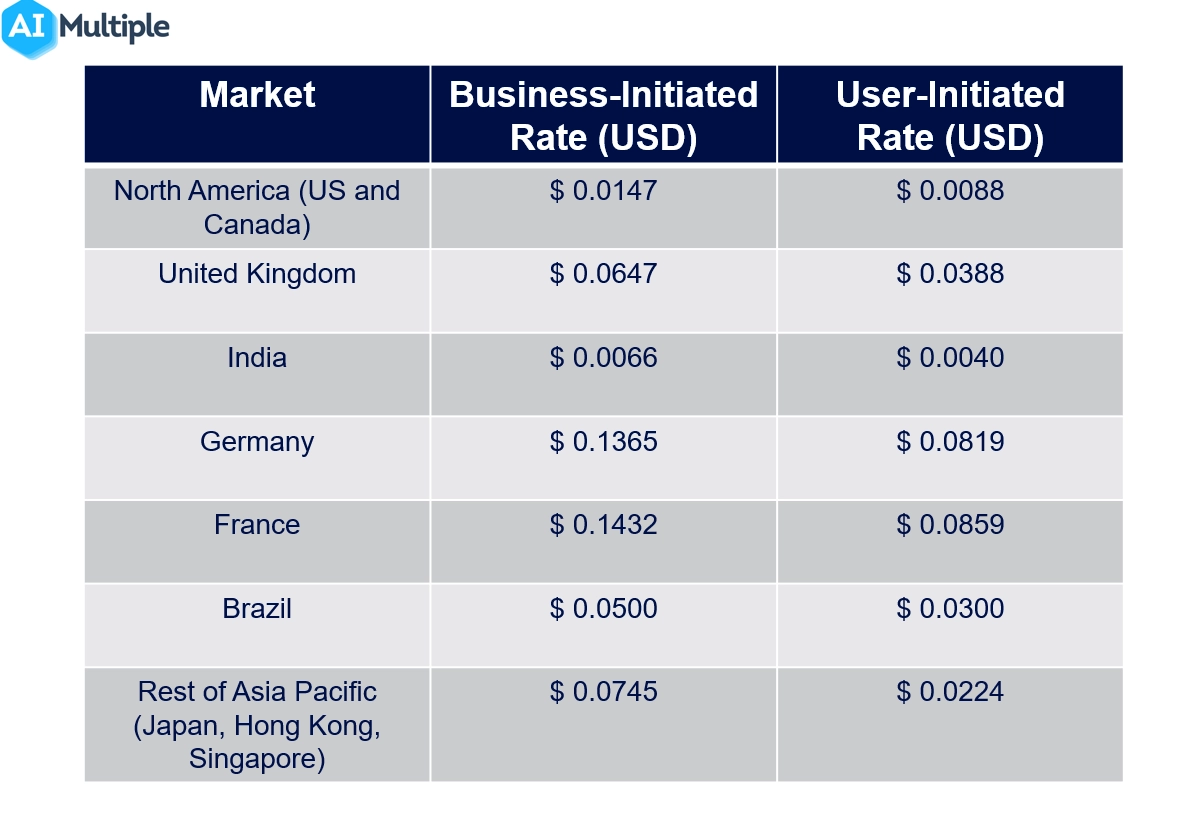
Top official WhatsApp Business Partners
1. 360dialog
Company provides automation of mass messaging on WhatsApp. Their solution offers easy integration with lots of marketing tools. Thus, you can segment your customers and send them to the correct messages at the correct time.
2. CM.com
CM.com is one of the e-commerce marketing companies that fulfill omnichannel customer support capabilities according to our benchmarks. This Netherlands-based WhatsApp partner can be a good match for companies that are located in Europe.
3. Twilio
Twilio is another e-commerce marketing company that offers services for:
- Contact centers.
- Marketing automation via data-driven mass messaging.
- Lead generation.
4. Yellow.ai
According to our benchmarks, Yellow.ai is one of the top conversational AI platforms. They automate customer relations via chatbots they designed.
To learn more regarding Yellow.ai competitors you can read our Top 3 Yellow.ai Alternatives & Competitors Detailed Guide article.
To learn more about WhatsApp Business Partners you can reach us:
This article was drafted by former AIMultiple industry analyst Görkem Gençer.
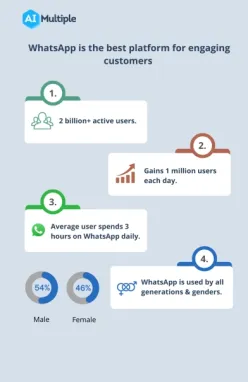
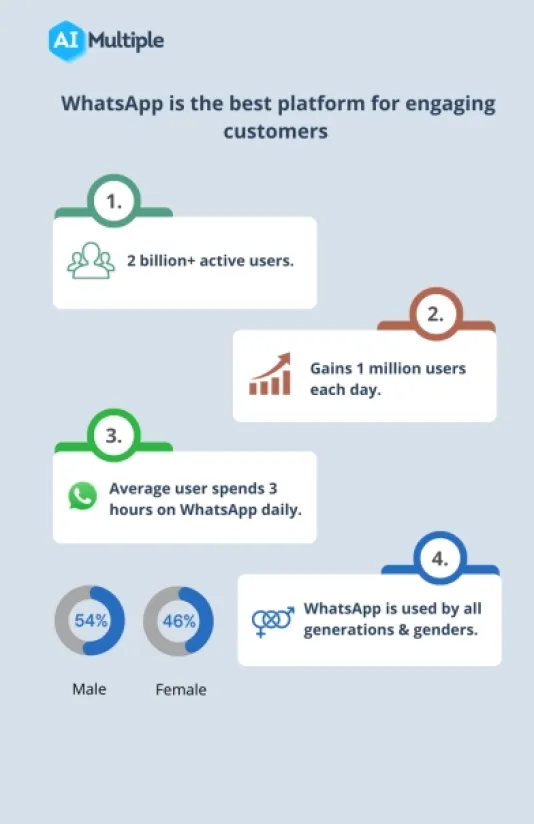

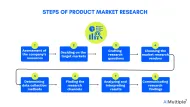
Comments
Your email address will not be published. All fields are required.